Bitcoin
Abra CEO Bill Barhydt on How Bitcoin Can Still Democratize Finance

Bitcoin was supposed to help the unbanked. Almost since its inception, boosters have been claiming this new kind of stateless, borderless money holds the key to financial inclusion, that it can help billions of people plug into the global economy. With traditional financial institutions, under pressure from regulators, continuing to pull out of parts of the world deemed too high-risk to serve, it’s tempting to think that cryptocurrency is the answer. But its tantalizing promise has yet to be fulfilled.
Bill Barhydt is working to make sure it will be. A former CIA cryptographer and early Netscape employee, Barhydt gave the first ever TED Talk on bitcoin, in 2012, when bitcoin was trading at only $4. Like many early enthusiasts, he saw right away the potential for cryptocurrency to provide the world’s poor with an alternative to Western Union and MoneyGram, while giving people of every income bracket a new kind of sound money, free from government interference. It took him several years more to hit on the right business model to make it happen.
Barhydt is the CEO of Abra, a digital wallet provider that aspires to be a “global bank” for people who may not have any other bank account. Right now, though, it’s primarily an investment platform, having gone through several iterations that reflect the changing narrative of bitcoin itself, from digital cash and borderless payment method to speculative asset. Abra allows retail investors to buy, sell, and hold 30 different crypto assets and 50 national currencies. It has 500,000 users across more than 100 countries, according to Barhydt, and has processed close to $1 billion in transactions so far.
But capitalizing on crypto mania is only the beginning. Using bitcoin smart contracts—agreements couched in, and executed by, computer code—Barhydt plans to launch credit services on the app later this year, on his way to doing even wilder things. I catch up with him by phone in mid-January, while he’s in Miami to attend the North American Bitcoin Conference. I want to know how an investment app can promote social good, what it will take to help immigrants more easily send money back home, and why Barhydt thinks the future of crypto may lie in collateralizing old-school assets.
What did you do before Abra?
I’ve been working in tech and financial services and payments for almost 30 years. I’ve done everything from working at the CIA as a cryptographer in secure messaging, to working at Goldman [Sachs] as a quantitative analyst in fixed income, to working on internet software at Netscape, and a lot of other stuff. It all led to Abra, including a lot of work in developing markets and mobile payments. Abra is the culmination of many decades of work to try to improve the banking system via software, the internet, and mobile.
When we pitched our Series A investors, it was basically to build a global bank using crypto.
You worked at the CIA?
Oh, God, this was a long time ago—this was like late ’80s, maybe 30 years ago.
So even before you got into financial services and payments, you were already involved in tech.
Absolutely. My background is in computer science by education, but I’ve done a lot of work in banking, as well as financial cryptography, over the last 10 years.
What was your initial concept for Abra, and what inspired it?
I wanted to build a single, smartphone-based application that would allow consumers in every country in the world to access financial services. The same way you can use WhatsApp or Instagram to share multimedia messages with people in 150-plus countries, I wanted to do that for banking services—whether it was investing, payments and money transfer, or credit. There is no single smartphone app that allows you to do those things in every country in the world today. There are obviously reasons why that’s the case, but I believe all the pieces are now in place to change that.
Tell me about Abra’s pivot away from borderless, frictionless money transfers to become an investment platform. What caused it?
We’re definitely committed to the overall payments, money-transfer space, just as much as we are to credit and investing. We just decided that the complexity of launching a global network for money transfers with crypto was too much for a startup. It was going to cost us way more money than we had in the bank. It’s like launching Uber in 100 countries when you have to sign up drivers. That’s why Uber raises so much money. When we pitched our Series A investors, it was basically to build a global bank using crypto. It included lots of different services—some of which we’re going to launch this year. But we just didn’t know at the time the best way to bring the services to market. We realized that we could add value very quickly with this model, build out a global network, and then over time layer in services like money transfer [and] credit, which we’ll be launching later this year.
Today, the process of sending money internationally is costly and opaque. Why is this so hard to do well?
Money transfers have a couple of different [aspects]. There are remittances, but there’s also the middle-class consumer, bank-wire perspective, or domestic services like Venmo or WePay. Most people associate remittances with migrant workers sending money home. [That’s where] the recipient usually wants cash in hand, and doesn’t really care about the technology. Most people who receive remittances don’t actually know which service the sender used, because they just receive cash. That is highly problematic for launching a mobile-to-mobile service. The reality is, if the recipient of a money transfer to India from somebody working oil fields in Saudi Arabia wants cash, then storing cryptocurrency on a smartphone doesn’t really make a lot of sense. Nobody really knows how to deal with that last-mile problem of remittances as it relates to crypto, because the recipient has a very different expectation in their mind [than] the techies.
What will it take to crack crypto remittances?
We have some ideas on how to scale that solution and how to address that over time, but that’s not our focus right now. We just want to build out services that take advantage of this synthetic-asset platform in order to get, literally, millions of users in the system. Then, eventually we’ll be able to provide services to more bottom-of-the-pyramid markets, where things like remittances or low-cost microloans are really going to move the needle. First things first.
What do you mean by “synthetic-asset platform”? Is “synthetic asset” just another term for crypto asset?
It’s not a crypto asset; it’s a crypto-backed asset. If you store a dollar—or invest in Zcash or Monero—through Abra, what you’re actually doing is entering into a multi-signature bitcoin smart contract that uses bitcoin as collateral to peg the value of bitcoin to that other asset. But the consumer doesn’t have to understand that. It’s super easy from the consumer’s perspective, but very complex in terms of what’s going on behind the scenes.
Nobody in Haiti says, “My problem is that I’m unbanked.” Most people in Haiti don’t know what the eff that word means.
Does the consumer know he’s holding bitcoin in a smartphone wallet, or—
They can know, via the terms of service, but they don’t need to know, and they don’t need to understand if they don’t want to. That would be like saying, “I’m at the counter at Walmart, and I want to know what happens when I swipe my credit card.”
But if this is a crypto investment app, it must be for people who want exposure to these assets. Don’t they want to see the actual assets in their wallet?
They do. They see their investment exposure to the asset. It’s an investing app. And it’s not just crypto assets; there are 30 crypto assets and 50 fiat assets [available], and you’re going to see more asset classes this year beyond fiat and crypto—all based on the same synthetic-asset model. So whether I’m investing in silver or Zcash or Mexican pesos, Abra works 100 percent the same way. And when I convert from pesos to XRP, or from XRP to Monero, or from Monero to Australian dollars, it all works the same way. It’s all a conversion of one bitcoin-based smart contract to another.
And that model can be extended to accommodate new assets and services?
The Abra model that I’m describing will work—using that same conversion of synthetic assets—whether it’s investing, payments and money transfer, or credit. We have users doing money transfer with Abra today, and the only difference between converting your dollars on the phone into Monero and sending money to somebody else is that the conversion of smart contracts happens on a different phone. In the investment use case, if I convert my dollars to Monero, it’s all happening in my Abra app. In the other use case, if I send dollars from my phone and [the money] lands as Zcash or euros on your phone, the conversion happens on your phone instead of on my phone.
Does Abra take conversion fees?
Yeah, we set the exchange rate between any two assets in the system, and we usually make a small spread on that conversion. That’s our revenue.
You mentioned the cost and the difficulty of Uber growing its network. I recall your plan a year and a half ago was to build out a network of on-the-ground agents in different places to provide cash to recipients of crypto money transfers. Did you run into trouble?
No, we actually did it. As a matter of fact, we have a running network in the Philippines. We simply stopped because we realized that the cost of deploying it—going beyond the tests that we were doing—was going to cost us $1 billion. And that didn’t make sense. Over time, we think we can build it out at much lower cost if we integrate it into other services. The cost of customer acquisition in the remittance space is incredibly high. The likes of Western Union, Xoom, [and] Remitly spend anywhere from $75 to $125 to acquire a customer in that space. Abra spends almost nothing on marketing today, because we’re adding value for people who want to use our app the way it is.
Why is it so costly to acquire a remittance customer?
It’s because there are 25 companies trying to acquire the same customers. When Xoom pioneered the online digital acquisition model for remittances, the cost of acquisition was very low. Then Western Union got into the digital business; so did MoneyGram, Remitly, and a whole bunch of other companies. So the cost went up 10X. At scale, a model like Abra’s, which is phone-to-phone, has a lower cost of acquisition because it’s more viral. But that’s going to work less in the remittance space than it will in the banking consumer space. Because if you’re going to use something like Abra to send a bank wire, you’re going to get the recipient to download Abra. They’re going to be incentivized by the fact that you’re sending a transaction which will result in more money in [their] wallet, since the cost of the transaction is close to zero. That makes the app kind of virally distributed. But in remittances, when the recipient is receiving cash, it’s very hard to create a viral model, because there is no tech on the receiving side. It’s a different business, with low stickiness and low loyalty and high acquisition costs. Whereas what Abra is doing has high loyalty, high stickiness, and very low cost of acquisition.
Abra is billed on its website as “the simplest way to invest in cryptocurrencies.” Are you trying to compete with Coinbase and Binance?
Since we launched the app into beta about a year ago as a very simple crypto wallet to buy, sell, hold, and exchange among crypto and fiat assets, that’s all we’ve been focused on. Now, we will be adding more asset classes to the app beyond fiat and crypto. I can’t say yet what those are, but they’re going to be coming very soon. Most of our users are non-trader retail investors. We don’t really compete with the exchanges, because most of our users aren’t really interested in using exchanges. They want a very simple retail consumer experience.
I liken what we do to Travelex at the airport, as opposed to doing forex trading at Goldman Sachs. You go to the airport with your leftover euros, put them on the counter, and leave the counter with a bunch of dollars. You go to the Abra app with a bunch of dollars and leave the app with a bunch of ether or XRP, or any combination. It’s simple. I don’t know of any app in the world, besides Abra, that gives you 80 assets, all 80 of which can be exchanged for all 79 of the others, with a simple one-click retail experience.
How many countries do you support now?
We have users in way more than 100 countries. Abra is in the iOS and Android app stores in almost every country in the world. About 50 percent of our users use the app by depositing bitcoin as the basis for their trading, and about 50 percent use their bank account. That we have so many users depositing bitcoin gives us a long tail of users in different countries, because in a lot of places it’s easy for them to get access to bitcoin now.
Almost since bitcoin was invented, people have been talking about how crypto could “bank the unbanked” and save the world’s poor from the high fees of Western Union and MoneyGram. But it still hasn’t happened in a big way. Can you explain why?
This is a very complex question, but I think I know the answer. There are basically three key pillars to providing banking in developing markets. Nobody in Haiti says, “My problem is that I’m unbanked.” Most people in Haiti don’t know what the eff that word means. You go to Mexico, you go to the Philippines, you go to Indonesia—nobody says, “Oh, my God, if only I wasn’t unbanked.” Nobody cares about that, except maybe people with great intentions at NGOs.
What people care about is, “Can I get credit in a pinch? Can I send or receive money at reasonably low cost? And can I invest? If I’m saving my family’s money, even if it’s only $50 a month, can I invest that money, or do I have to leave it under the mattress? And can I invest it in something other than my country’s failing currency?” In Venezuela or Argentina, if you’re older than 40 you’ve probably seen this rodeo 10 times: currencies failing and getting propped up, or failing and starting over. So all three of those models are relevant in developing markets.
There are only 100,000 investment accounts in the entire country of Mexico for tens of millions of people. That’s insane.
Now, this is where crypto starts to get interesting. For two reasons. One is bitcoin’s ability to serve as hard money. But, and this is a big one, it’s only going to become useful for the average consumer in the short term—the next five years—if you can take that hard money and use it to collateralize other asset classes. Because the average consumer does not have the mental capacity right now to understand what a cryptocurrency means. It would be like explaining TCP/IP to your grandmother so that she can watch Netflix. It’s not going to happen. But if you can collateralize real-world assets using crypto, [without] introducing new third-party custodians, you’re onto something really interesting. Because now you can represent fiat currencies, stocks, bonds, commodities in a way that doesn’t require you to become a bank. That’s interesting. You’ve got a combination of hard money and regulatory arbitrage to solve real consumer problems. That’s what I think it’s going to take to break into developing markets.
What do you mean by “regulatory arbitrage”?
I mean that if you can actually have the keys to your funds on a smartphone, there is no third-party bank required to help you manage those funds. And if the app is developed correctly, I can do things with those crypto-collateralized assets—my cash, my stocks, my mutual funds—that I couldn’t do in Haiti today. According to my research, there are only 100,000 investment accounts in the entire country of Mexico for tens of millions of people. That’s insane. People just don’t trust, or don’t have access to, [those financial channels]. But they all use WhatsApp. So if you could give them an app that is as easy as WhatsApp—where they don’t have to trust the banks, they don’t have to trust the government, they can be in control, they can get access to U.S. or European markets for investing, they can receive money from their family in the U.S.—using this crypto-collateralized model that bypasses the banking system, the consumer all of a sudden is using bitcoin but doesn’t know it. That’s the key to success, in my opinion. So you have to understand not only how to take advantage of this new digital hard money, but also how to build services that hide its complexity from the average consumer. Whether they’re in Mexico or the Philippines or Indonesia, it makes no difference. The viability and demand for what I’m talking about is global.
The complexity of your model seems counterintuitive. This is what it’s going to take to gain worldwide adoption?
I think that’s what it’s going to take. Most people say, “Use bitcoin to do money transfer and the world will be great.” Well, obviously that’s a bunch of nonsense. It’s not happening. I can actually explain to you right now how to invest in stocks using bitcoin in a way that doesn’t require any banks or any regulated exchanges, and you wouldn’t do it—because it would be so complex, it would make your head spin. But if you could do it in a way that hid the complexity from the average consumer, and all they [knew] was “Oh, I just received pesos,” or “I just got a low-cost loan against the assets that I’m holding in the simple banking app on my Android phone,” then people would use it. I promise you.
In this model, crypto becomes the bank. When you’re holding dollars, you’re actually holding crypto-collateralized dollars rather than dollars in a bank vault. Now, a crypto-collateralized dollar is a very complex instrument, but the consumer doesn’t have to understand it. They can just look at the app and see that it’s a dollar.
And they can still send that dollar to someone and have that person receive it and spend it as a dollar?
Exactly. The person who receives it would be receiving a crypto-collateralized dollar, but then he can use on-ramps and off-ramps that we’ll be providing over time to go to the store and spend that dollar.
Or even potentially deposit it into a bank account?
Exactly.
I know you have large ambitions to benefit people all over the world. But when most people think of social good, crypto investment schemes aren’t the first thing that comes to mind.
Nor should they be. The focus for us this year is: What is the next generation of assets that are really going to add huge value to the everyday average investor at global scale? That’s where I’m spending my time right now. We want to make credit services available to rural China and core parts of Central America as well as to [middle-class] people in the West.
So you haven’t given up, then, on the idea of bitcoin—or any crypto—helping the unbanked?
“Unbanked” is such a horrible term. It’s such a useless phrase. The services we’re [launching] are going to be very useful in developing markets that aren’t traditionally targeted by large retail banks. Whether [our users are] banked or unbanked, or people with a bank account that has a zero balance, doesn’t really matter to me. If you look at the markets that we’re interested in, with the services we’re launching this year, it’s going to be places like Mexico, the Philippines, Indonesia. It’s not going to be the very bottom of the pyramid, places that are literally relief and disaster zones. We’ll get there eventually. But I think that up-and-coming developing countries are the ones that are really going to take advantage of this.
How has the crypto winter affected your business?
This year, I think most of our revenue will not come from crypto trading; it will come from other asset classes that use crypto in the background, as a synthetic asset, but where people aren’t [explicitly] saying, “Oh, I want Zcash.” They’re going to be saying, “I want some real-world asset.”
That leaves me particularly bullish on the future of crypto, because I think the single biggest opportunity to grow the crypto market—bar none—is not institutional investors coming in, it’s crypto collateralizing real-world assets to enable all kinds of banking services. Nobody seems to get that but Abra—and that drives me insane, to be honest. Think about this for a second. What we’re doing, we’re doing in 100 countries, all based upon bitcoin collateralizing assets. Now, there’s simply not enough bitcoin in the world to collateralize the assets that we are going to be collateralizing. What is that going to do to the price of crypto as a result?
Collateralization of real-world assets is going to drive the demand [for crypto] through the roof.
You think it will drive up the price?
If I’m right, it has to. Every single transaction done in the Abra system is completely, 100-percent collateralized in bitcoin. And at the rate we’re scaling, there’s simply not enough bitcoin to collateralize all of those assets. But if the price of bitcoin were 100X higher, there would be more than enough.
Because you’d simply use small fractions of each bitcoin?
Exactly. You’d be able to divvy it up to a lot more people. But that won’t happen, in my opinion, simply because some investors arbitrarily decide it’s a great idea. Investors are going to decide it’s a great idea because collateralization of real-world assets is going to drive the demand through the roof.
Interesting. And why have you chosen to use bitcoin smart contracts instead of Ethereum smart contracts?
When we started Abra, bitcoin was really the only way to do this. Ethereum was basically a beta project. The market capitalization was very low, it wasn’t globally liquid, and a lot of the wallet implementations have had big security issues. Ethereum itself hasn’t had big security issues, but if you look at DAO and other complex wallets, they’ve had security issues. The scripting language of bitcoin can’t really do much, and that’s why it’s so secure. The liquidity of bitcoin, the security, the market cap—all those things together led us to the conclusion that it’s the right model for Abra. It does exactly what Abra needs. No more, no less.
What is your five-year vision for Abra?
My five-year vision is that Abra democratizes access to financial services for every consumer in the world. Whether it’s investing, payments and money transfer, or access to credit. By combining [smartphones] with a crypto-based platform, [you can] democratize true access to real financial services for everyone, not just for the wealthy.
This interview has been edited and condensed.
Source: breakermag.com
Bitcoin
Recover Scammed Crypto by Contacting the Best Crypto Scam Recovery Expert (2024)

Have you fallen victim to a cryptocurrency scam? Unfortunately, these malicious acts are becoming increasingly common, leaving individuals frustrated and financially drained. But don’t lose hope!
Report Scammed Bitcoin (RSB) understands the devastating impact crypto scams can have, and we’re here to help you fight back. Introducing reportscammedbitcoin.com, the leading crypto recovery experts for 2024.
RSB specializes in assisting individuals who have lost their hard-earned cryptocurrency to scams, hacks, and other fraudulent activities. The team of highly skilled and experienced professionals at RSB is dedicated to recovering your stolen assets and bringing the perpetrators to justice.
Understanding Crypto Scams
Cryptocurrency, while innovative and potentially lucrative, has also become a breeding ground for various scams due to its decentralized and pseudonymous nature. Understanding these scams and their red flags is crucial for investors to protect themselves from financial loss. Here are some common types of crypto scams and red flags to watch out for:
Phishing Scams:
Phishing scams involve fraudulent attempts to obtain sensitive information, such as login credentials or private keys, by impersonating legitimate entities through fake websites, emails, or social media messages.
Ponzi Schemes:
Ponzi schemes promise high returns on investment by using funds from new investors to pay returns to earlier investors, rather than generating profits through legitimate business activities.
Exit Scams:
Exit scams occur when cryptocurrency projects or platforms suddenly disappear or shut down, taking investors’ funds with them. These scams often involve promising products or services that never materialize.
Rug Pulls:
Rug pulls occur in decentralized finance (DeFi) platforms when developers or insiders drain liquidity from a project by selling off their tokens, causing the value to plummet and leaving investors with worthless assets.
Fake ICOs/IEOs:
Fake Initial Coin Offerings (ICOs) or Initial Exchange Offerings (IEOs) involve fraudulent projects that raise funds by selling tokens to investors with the promise of future utility or profits, only to disappear once the fundraising is complete.
Unsolicited Investment Opportunities:
Unsolicited investment opportunities via social media, cold calls, or messaging platforms may involve fraudulent schemes aiming to manipulate investors into purchasing worthless or nonexistent assets.
Which is the Best Crypto Recovery Expert?
The best choice for you will depend on several factors, including:
- The specific type of scam you were targeted by: Different recovery experts specialize in different areas, such as exchange hacks, phishing attacks, or investment scams.
- The amount of money you lost: The fees charged by recovery experts can vary depending on the size of your claim.
- Your risk tolerance: Some recovery services offer guarantees, while others operate on a “no win, no fee” basis.
- Your level of technical expertise: Some services require more technical involvement from you than others.
Here are some things to keep in mind when choosing a crypto recovery expert:
- Beware of companies that make unrealistic promises or guarantees. Recovering stolen crypto is often difficult, and there is no guarantee of success.
- Do your research and read reviews before hiring any company. There are many scams targeting victims of crypto scams, so be careful who you trust.
- Get everything in writing before you start working with any company. This includes the fees, the services that will be provided, and the expected timeline for recovery.
Helping You Navigate Your Crypto Funds Recovery Options: Introducing Report Scammed Bitcoin (RSB)
Introducing the best crypto recovery expert 2024 in the industry: Report Scammed Bitcoin (RSB). With a team of seasoned professionals and a proven track record of success, Report Scammed Bitcoin (RSB) Solutions stands out as the best crypto recovery expert you can trust.
RSB’s best crypto recovery expert team has the expertise and experience to assist you in reclaiming lost or stolen cryptocurrency assets. The best crypto recovery expert team takes a personalized approach to each case, ensuring that you receive the individualized attention and support you deserve.
Contact the best crypto recovery expert today and let them help you recover your valuable assets. Trust RSB for the best crypto recovery expert assistance you need.
How Report Scammed Bitcoin (RSB) Supports You
Understanding Your Situation: RSB will start by listening attentively to your experience, dissecting the scam tactics employed, and assessing the nature of your losses.
- Exploring Recovery Options: Based on your unique circumstances, RSB will introduce various recovery avenues, including free and paid options, clearly outlining their advantages, limitations, and potential risks.
- Empowering Your Choice: RSB empowers you to make informed decisions. Our recommendations are unbiased and not influenced by partnerships or affiliate agreements. Your best interests are at the heart of everything they do.
More Than Just Consultations:
While consultations, blockchain analysis, fund tracking and chargeback are their core service, RSB also offers the following to enhance your recovery journey:
Supporting individuals in recovering their scammed bitcoin involves a multi-step process aimed at gathering information, conducting thorough investigations, and suggesting viable solutions. Here’s how RSB can assist you in recovering your scammed crypto:
- File a Complaint:
Begin by filing a detailed complaint outlining the specifics of the transactions and providing any relevant details about the website or platform involved. The more information you can provide, the better equipped RSB will be to assist you.
- Initiate Investigations:
Once RSB receives your complaint and gathers the necessary information, their team will commence thorough investigations. These investigations are designed to map out the flow of transactions and identify any potential leads or points of contact associated with the scam.
- Analyze and Recommend Strategies:
Drawing upon the team’s expertise and experience, RSB will analyze the findings of their investigations and recommend a range of strategies tailored to your specific situation. These strategies may include legal avenues, negotiation tactics, or technological solutions aimed at recovering your scammed bitcoin.
- Provide Multi Solutions:
The qualified team of experts at RSB will present you with a variety of cutting-edge solutions designed to increase the likelihood of recovering your lost funds. These solutions may involve engaging with relevant authorities, leveraging blockchain analysis tools, or pursuing alternative dispute resolution methods.
- Offer Ongoing Support:
Throughout the recovery process, RSB will provide you with ongoing support and guidance to keep you informed of the progress made and address any questions or concerns you may have. Their goal is to ensure transparency and accountability every step of the way.
Conclusion
In conclusion, when it comes to recovering lost or stolen cryptocurrency assets, choosing the right expert is crucial. With Report Scammed Bitcoin (RSB), you can rest assured that you’re partnering with the best crypto recovery expert in the industry.
Their dedicated team, proven track record, and personalized approach set us apart, making RSB the top choice for individuals seeking assistance with crypto recovery. Don’t let cryptocurrency fraud disrupt your financial security.
Contact Report Scammed Bitcoin (RSB) today and experience the peace of mind that comes with working with the best crypto recovery expert in 2024.
Bitcoin
Microvisionchain announce MVC-20: The first protocol for free-minting assets on the bitcoin sidechain
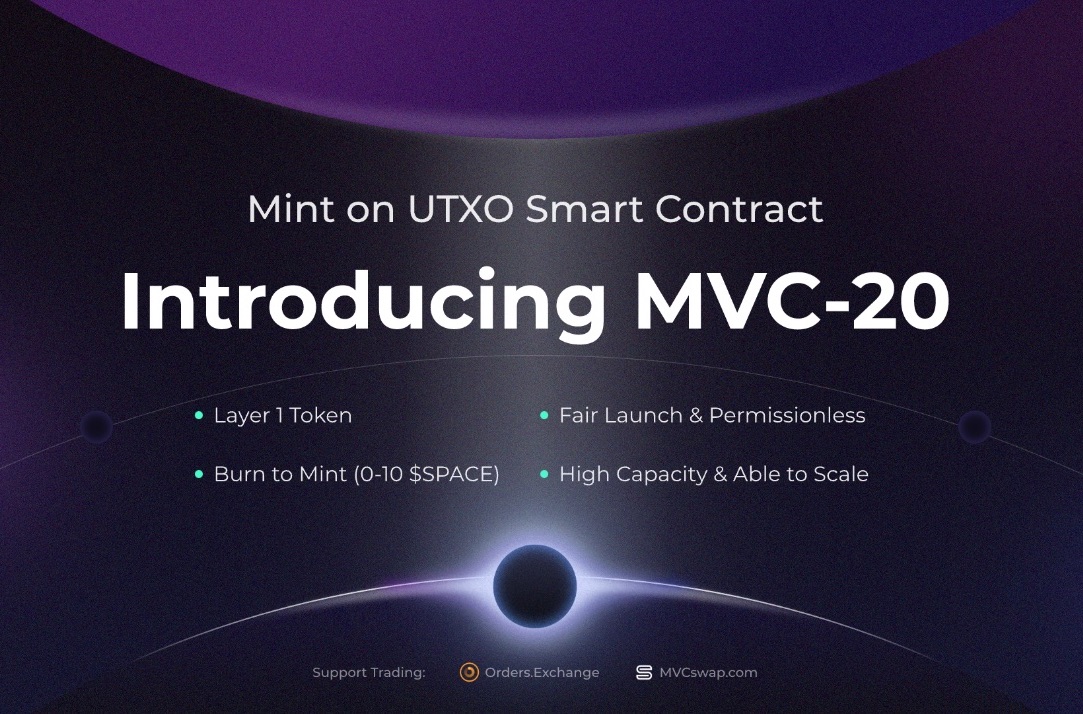
The future of assets protocol:
Fair launch, simplicity, efficiency, and low transaction fees
As we journey through 2023, the blockchain industry is buzzing with excitement, particularly the BRC-20 token market, led by the innovative Ordinals protocol. Moving forward, in 2024, the surge in market demand has ignited a quest for more efficient blockchain functionality, lower gas fees, and simplified operations. The market is also yearning for a fair competition environment for all participants.
Enter MVC-20, a revolutionary assets protocol that fully harnesses the high concurrency and low latency transaction characteristics of the MVC Layer1 smart contract. It’s designed to build an innovative fair distribution mechanism that addresses the fairness issues plaguing traditional models. MVC-20 is poised to bring about a seismic shift in the Bitcoin ecology token and NFT markets.
Introducing MVC-20: The First Protocol for Free-Minting Assets on the Bitcoin Sidechain
MVC-20 is a trailblazer, being the first free-Mint assets Protocol on the MVC Chain. It adopts a unique “burn to mint” mechanism, ensuring a fair start for everyone – no pre-sales, no whitelists, no team allocation, and no gas fee front-running transactions. The cost of minting MVC-20 tokens is burned, converting the value of the burned ‘Space’ [MVC network’s gas] into the intrinsic value of the MVC-20 token, without flowing into the project party or miners’ wallets.
Introducing the Burn to Mint Mechanism:
MVC-20 stands out from BRC-20 asset protocols with its innovative Burn to Mint concept. This allows the deployer to decide the burn rate of the MVC-20 token at deployment. Subsequently, all users who mint the MVC-20 token must burn a specified amount of SPACE [MVC network’s gas] to carry out the minting. The burn rate can be set between 0 and 10 quantity of SPACE.
Key Features of MVC-20:
- Layer 1
- Fair distribution [Fair Launch]
- High concurrency and low latency transactions
- Burn to mint
- Customizable: Burn rate 0-10 Space
- Permissionless
- Multi-functional Launchpad
- Compatible with various existing ecosystems and wallets, such as Show3, Orders.Exchange, MVCswap, Metalet and Indexer
MVC-20 Official Launch Day:
Starting from January 22, 2024 [UTC 15:00PM], user can begin to explore the innovative burn to mint mechanism of MVC-20 protocol. Get ready to experience the future of blockchain with MVC-20.
For more details, please visit:
https://mvc20.space/
https://mvc20.gitbook.io/intro
Microvisionchain: Introducing the Ultimate Solution to Bitcoin’s Scalability Challenge!
Microvisionchain presents a novel concept of Unified Scaling Ecosystems for Bitcoin, aiming to resolve Bitcoin’s scalability issue definitively. This plan doesn’t merely offer a same structure to Bitcoin but enhances Bitcoin’s capabilities by:
1. Superior Scaling:
Introducing a scaling solution that outperforms traditional ETH layer2 solutions. Imagine a Bitcoin ecosystem that’s ever-expanding, equipped with a Turing complete smart contract layer, and offering ultra-low fees without congestion.
2. User-Friendly:
Keeping it simple. A single private key can be used across all related second layers/sidechains, making the transition of ecosystem applications seamless and straightforward.
3. Unified Ecosystem:
Unifying countless second layers/sidechains with BTC at the core to collectively tackle BTC’s scalability issues. This will enable global user participation in Bitcoin ecosystem applications.
Implementation Steps:
Step 1: 1 MVC
The MVC node is expected to upgrade in March or April 2024, enabling the BTC ecosystem to transition seamlessly to MVC. MVC has already solved its scalability issue, with a measured TPS of up to 10,000 and transaction fees lower than 0.1 cent. MVC is the first Bitcoin-structure side-chain to implement a layer 1 smart contract on the UTXO structure, enhancing user experience and application capabilities.
Step 2: 100 MVCs
Developers can run a replicated MVC network within half an hour and adjust parameters as needed, provided the core UTXO structure and underlying capabilities remain unchanged for future compatibility with MVC and BTC.
Step 3: Use of Bitcoin
The creation of a global Unified Scaling Ecosystem for Bitcoin will permanently solve BTC’s scalability issue. Having 100 MVCs equates to having 100 large UTXO networks fully conforming to Bitcoin. Subsequent updates will support these 100 MVCs and various third-party Bitcoin-structure second layers/sidechains/ecosystems to form a globally expanding Bitcoin ecosystem expansion network.
Supporting ecosystems:
- Mapping Satoshi Asset Bridge
- UTXO chain block time synchronization system
- Wallets that support multiple chains, and more.
We’re confident that, through MVC’s POB mechanism with builder grant program, we can attract global developers to revolutionize the whole blockchain industry and permanently resolve BTC’s scalability issue together.
Benefits of the MVC Unified Scaling Ecosystem plan:
Microvisionchain is a simple and elegant scalability solution that will permanently solve Bitcoin’s scalability issue and enable Bitcoin assets to possess smart contract capability. It is a superior scaling solution than many ETH second layers, uniting future second layers to collectively address Bitcoin’s scalability in a global network.
Bitcoin
BL2 Technology officially launched: fostering the development at On-Chain Scaling Evolution
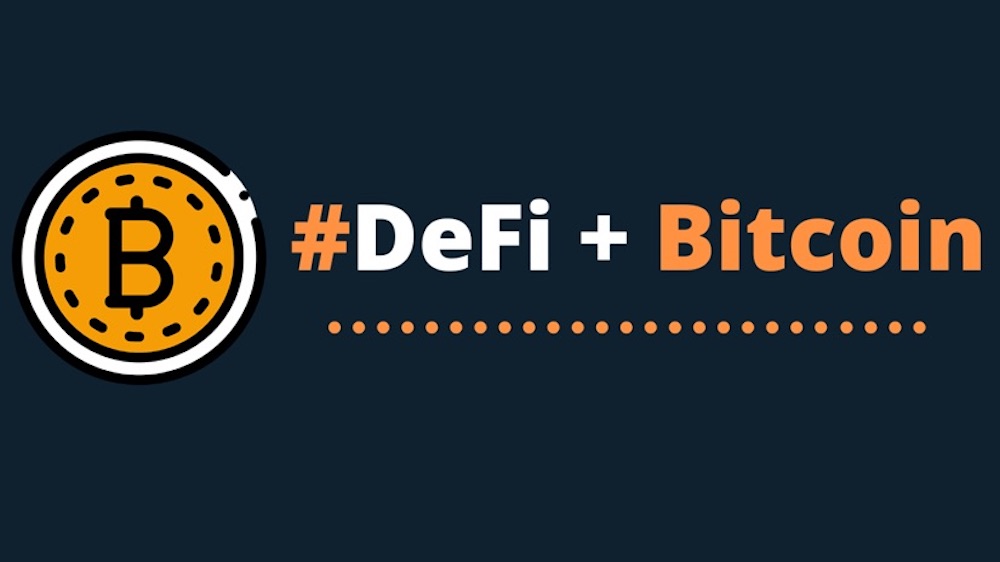
Recently, BL2 technology in Bitcoin officially launched, brings significant improvements to the overall Bitcoin ecosystem, fostering the development at On-Chain Scaling Evolution
In the dynamic realm of blockchain technology, the rise of Web3, the metaverse, and the transformative impact of NFTs in digital finance propel society forward at an astonishing pace. Amidst this, the limitations of blockchain design challenge its ecological expansion.
I. BL2 Technology Resurgence:
While Ethereum’s Layer2 tech gained attention, BL2 technology in Bitcoin, a recent breakthrough, takes center stage.
II. BL2’s technological tapestry weaves together various components:
At its core, side chain technology is the linchpin of BL2, enabling Bitcoin transactions and settlements on a distinct chain. This essential component is intricately linked to the main chain through a bridging mechanism, ensuring secure and fluid asset transfers, and creating a comprehensive extension layer.
The Lightning Network, another integral part of BL2, operates as a decentralized payment protocol fueled by smart contracts. Its objective is to facilitate quick and cost-effective microtransactions. Through off-chain payment channels, participants can execute numerous small transactions, alleviating the burden on the main chain and consolidating transaction records when channels are closed.
Furthermore, the EVM-compatible decentralized Layer 2, a product of Bitcoin’s Taproot upgrade, introduces the Schnorr Signature+ MAST contract. This advancement paves the way for decentralized multi-signatures involving over 1000 addresses. Not only does it enhance security, but it also creates opportunities for authentic decentralized cross-chain functionality, all while preserving network speed and efficiency.
III. Advantages and Challenges of BL2 Technology:
Unleashing a range of advantages, BL2 technology brings significant improvements to the overall Bitcoin ecosystem. Firstly, dynamic scalability is achieved as BL2 alleviates the main chain’s burden, contributing to enhanced system scalability. Secondly, cost-efficiency is realized through the reduction of transaction costs and the alleviation of main chain congestion, thanks to the implementation of off-chain transactions. The BL2 architecture also ensures swift transactions by facilitating prompt confirmations, thereby boosting transaction speed. Lastly, the integration of side chains and the Lightning Network promotes ecosystem diversity, fostering the development of various applications within the Bitcoin ecosystem.
Tackling Challenges: However, along with its advantages, BL2 confronts certain challenges. Foremost among them is the need to prioritize security. Mitigating security concerns related to side chains and the bridging mechanism is crucial for ensuring comprehensive system security. Additionally, addressing interoperability challenges among on-chain scaling solutions is pivotal to prevent fragmentation and communication hurdles. It is imperative to bridge the gap and establish a unified interoperability standard for seamless functioning.
IV. Evolutionary Trajectory
Future Development of BL2 Technology includes several key components. Firstly, Celestia DA Data Storage Verification marks BL2 as the inaugural BTC Layer2 with this feature, emphasizing functional execution to boost efficiency and stabilize on-chain activity costs. Additionally, BTC Multi-Protocol Asset Aggregation showcases BL2’s capability to combine BTC and ecosystem-derived assets, streamlining high-speed, low-cost transactions and diminishing reliance on Layer-1. Moreover, the introduction of BTC Account Abstraction empowers developers to programmatically define transaction validity conditions, providing enhanced user flexibility and optimizing existing BTC wallets. Lastly, the creation of an Extension Community based on $BL2T aims to foster an open community dedicated to decentralized Bitcoin and scaling ideals, with $BL2T acting as a value consensus carrier, encouraging widespread participation in shaping the future of the Bitcoin ecosystem.
Conclusion:
In the ever-evolving blockchain landscape, Bitcoin’s BL2 technology emerges as a pioneering force, offering a blend of technical prowess, advantages, challenges, and future development directions. This sets the stage for a more scalable, efficient, and diverse Bitcoin ecosystem.
Official Website: https://bl2.live/
Bitcoin
Bit Brother Announced 2.39 Bitcoin has been Mined
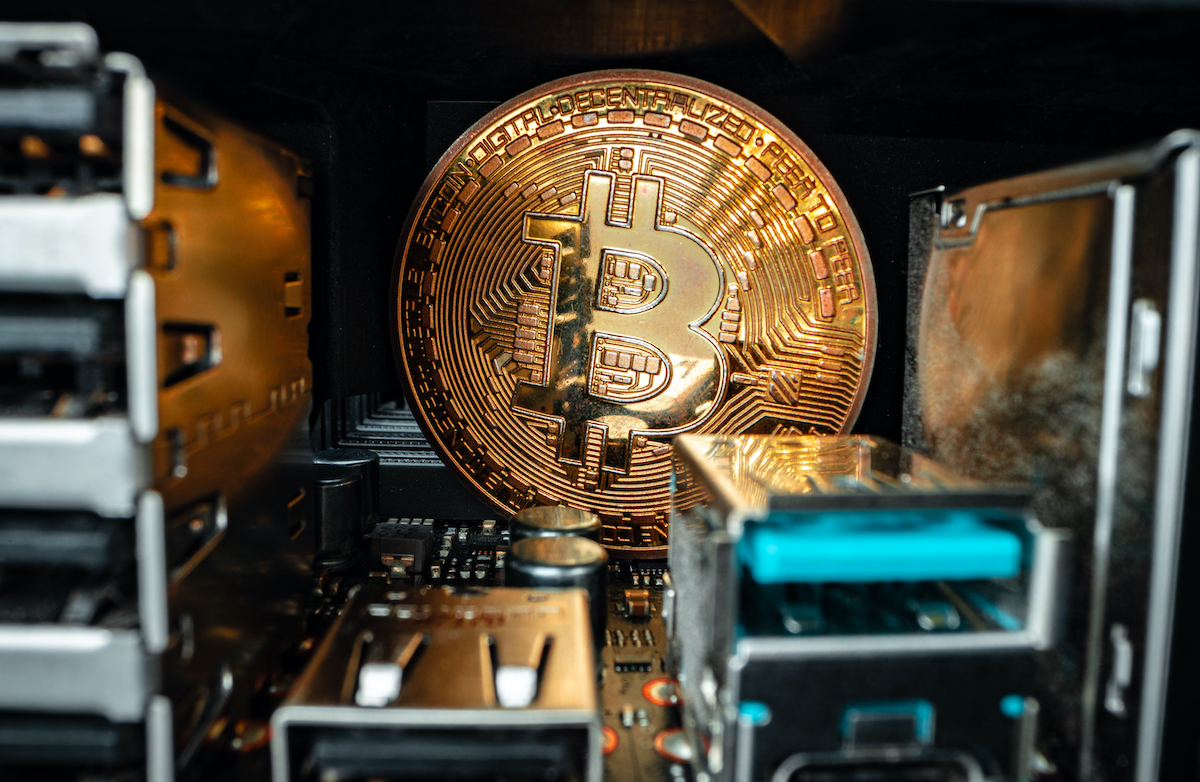
Bit Brother Limited (the “Company,” “we”, “BTB” or “Bit Brother”) is pleased to announce till the time this Press Release is published, all 1,400 S19J Pro cryptocurrency mining servers have been operating with the total hash rate of 140,000 TH/S in Texas mining farm, which is owned by BTB’s subsidiary Bit Brother New York Inc (“BTB NY”). And 2.39 Bitcoin has been mined.
The Company seeks to provide as much transparency about its bitcoin mining operation as possible. The link below reflects the BTC we have mined in real-time:
https://www.blockchain.com/explorer/addresses/btc/37frzvqQeAzf6hWj4J9zrEzZf4WJoo3sRR
Ralph Jones, CEO of BTB New York, commented gladly, “The operating of the 1,400 mining servers is an important step which reflects the substantial achievement of BTB’s North American blockchain business, and represents that BTB’s transformation into the block industry was successful. Management team of BTB will continue to explore more green power to expand the mining farms, purchase more mining servers, and devote more computing power. The Company is committed to develop its cryptocurrency and blockchain businesses to benefit the Company, as well as its shareholders.”
These mining results do not include any financial results for the Company and do not address the Company’s other, non-mining operations. United States generally accepted accounting principles for cryptocurrency mining are complex, emerging, and uncertain. Cryptocurrencies may not be recognized as cash or cash equivalents, and mining activities may not qualify for revenue recognition. Cryptocurrencies have no inherent value, are not legal tender recognized by any governmental entity, and might not be able to be converted into fiat currencies. Investors are advised not to place undue reliance on mining results alone, without considering other financial and non-financial metrics.
About Bit Brother Limited
Bit Brother Limited (formerly known as Urban Tea, Inc.) was incorporated in the British Virgin Islands as a company with limited liability on November 28, 2011. Our business currently consists of cryptocurrency mining in North America, and the distribution and retail of specialty tea products. For more information, please visit: www.bitbrother.com
Bitcoin
OpenNode partners with Lemon Cash to enable Lightning-fast Bitcoin payments and payouts for its 1M+ customers
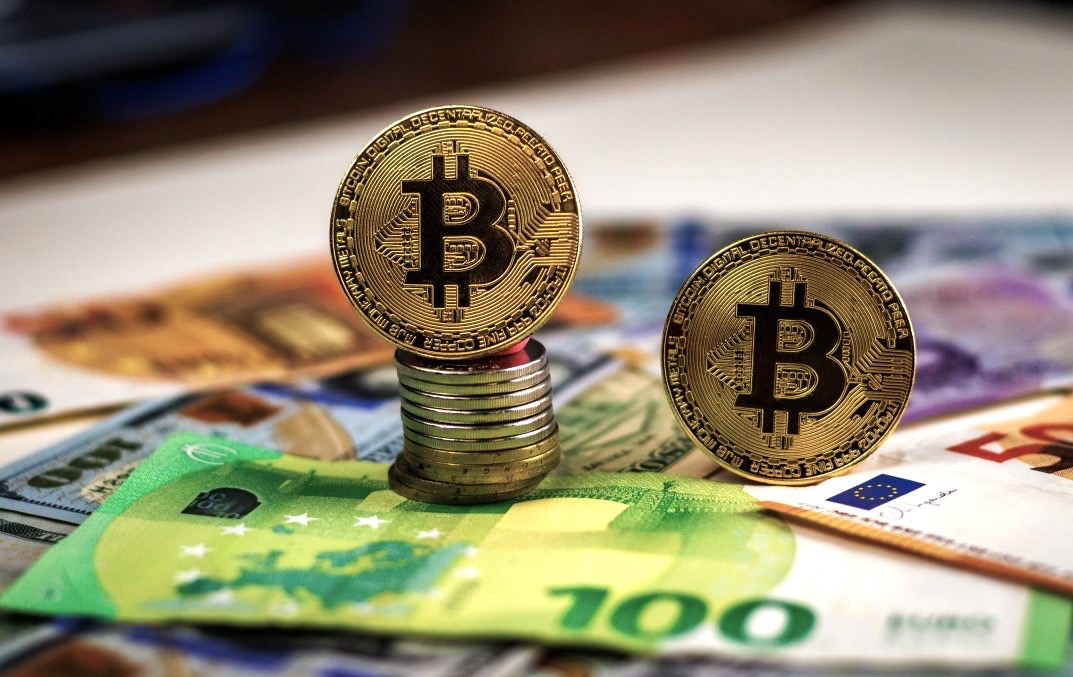
OpenNode continues its relentless growth and innovation of the Lightning Network through its partnership with blockchain-powered Lemon Cash, an Argentine financial services company best known for its digital wallet and Argentina’s most-downloaded cryptocurrency app. Powered by OpenNode’s industry-leading technology, Lemon Cash customers will soon be able to facilitate Bitcoin transfers in and out of their wallets as well as facilitate payments in Bitcoin by leveraging the low cost and instant settlement of the Lightning Network.
More than one million Argentinians have adopted Lemon Cash with exponential growth expected to continue following its recent entry into the Brazilian market.
“This partnership is yet another example of our capability and belief in Bitcoin as the new base layer for global payments,” says Josh Held, Head of Strategy at OpenNode. “We’re proud to support Lemon’s mission, its desire to scale and benefit its customers and ultimately the growth of the Bitcoin economy in Latin America and beyond.”
Lemon Cash Co-Founder Borja Martel Seward added, “Introducing the Lightning Network to more than one million users in partnership with OpenNode will be a huge step towards our main goal: to make crypto more usable and accessible in LATAM.”
In 2017, OpenNode was the first company to innovate on the Lightning Network, a Bitcoin scaling solution that provides instant and final payment settlement with zero risk of chargeback fraud. OpenNode focuses solely on Bitcoin because it offers the highest level of security and regulatory compliance, whereas other cryptocurrencies remain speculative and non-secure.
Learn more at www.opennode.com
About OpenNode
OpenNode is a leading Bitcoin payments infrastructure platform, servicing companies in 126 countries through our Bitcoin Lightning Network-powered products. We remove complexity and risk by providing superior technology solutions, including simple no-code, turn-key hosted checkouts, e-commerce plug-ins and APIs for customized integrations. Compatible with every Bitcoin wallet, OpenNode is transforming money and payments for every business, everywhere. Founded in 2017 and backed by influential global investors, OpenNode is on a mission to empower and connect the world with Bitcoin.
About Lemon Cash
Lemon (lemon.me) is one of the fastest-growing crypto startups in the world. Its main goal is to launch civilization into the future of money and the internet, with a special focus in Web 2 and Web 3 interoperability. Lemon’s main product is a wallet with both FIAT and Banking capabilities and Crypto & Web 3 features such as crypto interest accounts, trading and more. Founded in 2019 by entrepreneurs Marcelo Cavazzoli and Borja Martel Seward, the company has offices in Argentina and Brazil and is expanding across the region. During 2020, Lemon raised its 1M Seed round led by U.S. fund Draper University Ventures and Argentine Fund Draper Cygnus, also joined by the U.K.’s Silent Unicorn and Amagis Capital. Thanks to the received contributions, and after announcing an additional raise of $16.3 million in its Series A led by Kingsway Capital with co-participation of renowned investors such as Draper Associates and Coinbase Ventures, Lemon is currently one of the most promising and successful crypto companies in the region, and one of the few to have crossed the 1M user threshold in 2022.
Bitcoin
Popular BTM Operator: Bitcoin of America Welcomes Shiba Inu Coin to Its Bitcoin ATMs

Bitcoin of America has officially announced the newest addition to their Bitcoin ATMs (BTMs). Shiba Inu coin is now available at Bitcoin of America ATM locations. Bitcoin of America has more than 1800 BTMs across 31 states. They recognized the growing popularity of Shiba Inu and decided it was time to include it in their BTMs. Bitcoin of America also offers Bitcoin, Litecoin, and Ethereum options. This news comes after their recent addition of Dogecoin in March of this year.
Bitcoin of America is a popular virtual currency exchange registered as a money services business with the United States Department of Treasury (FinCEN)(RegNum). They are known for their top-of-the-line customer support while also providing a fast and hassle-free transaction.
Bitcoin of America makes it easy for everyday businesses to get their hands on a Bitcoin ATM and for customers to buy Bitcoin. They take care of their host locations by providing passive income, increased foot traffic, and marketing. They even handle customer support and any maintenance/installation services.
The popular operator has made many updates to its BTMs and services over the past year. They launched their universal kiosks, which operate as a traditional ATM combined with BTM functions. Bitcoin of America has created a point-of-sale system for their tablet program, which has allowed businesses to accept cryptocurrency as a new form of payment. Bitcoin of America is constantly expanding and improving its services.
Bitcoin
PHAETON RAISES USD 1.5 MILLION WITHIN 24-HOUR OF IEO LAUNCH

Phaeton, a blockchain-cantered service company that offers sustainable investment options, launched its IEO on September 18. Within 24-hours of the IEO, the project raised $1.5 million US dollars indicating a considerable demand in such a new blockchain technology service firm.
Phase 1 of Phaeton’s IEO is currently live on two Crypto Exchanges, namely P2PB2B and LAToken. Here, users can buy the native token PHAE that plays a critical role in the Phaeton ecosystem.
After Phaeton’s IEO campaign ends, PHAE Coins will be available for open market trading (buy & sell).
The second phase lists several other major exchanges, namely OKEx, FTX, Bitfinex, Gemini, and Kucoin. Team Phaeton are currently engaged and working with the latter exchanges.
Phaeton Technology has created a Positive Social Impact Platform that incubates, develops, and collaborates with new and established business enterprises that address social and environmental challenges in line with the United Nations Sustainable Development Goals. The project aims to resolve long-running social issues using blockchain technology and collaborate with all business levels, government agencies, not-for-profit organizations, impact investors, philanthropists, and technologists who want to make a social change. The sectors that Phaeton is looking at include:
- Affordable housing and community development
- Renewable energy and conservation
- Carbon credits and climate change
- Health and Wellness
- Education and social infrastructure
- Small business and microfinance
- Sustainable products and agriculture
- Supply Chain management
Phaton Ecosystem and Core Technologies
The Phaeton platform has an ecosystem offering users access to a decentralized global market. Its side chains allow independent dApps, facilitating customization, scalability, and a departure from high network fees providing multiple benefits for the users. In addition, the protocol has been designed to make it convenient, secure, and seamless for all stakeholders. Phaeton ecosystem comprises the following core technologies that power the platform and make it infinitely scalable and highly usable.
- Phaeton Blockchain: Phaeton Blockchain has created its decentralized ledger system with a 250kb block size (potential of one million transactions) and five-second creation time. Phaeton Blockchain is based upon the Delegated Proof of Stake plus Delegated Byzantine Fault Tolerance (DPoS+dBFT) consensus algorithm, significantly improving energy efficiency. Phaeton remains an independent blockchain that provides its native platform for enterprises to use, whether for monetary, transaction, data, or smart contracts. The ability for individuals to host a node is critical for the speed, infinite scalability, and security of Phaeton’s Blockchain.
- Phaeton Core: Phaeton Core is a single-sign-on platform with multi-factor authentication and biometric identity validation for smart contracts, KYC, and cosignatory transaction authorization. Phaeton Core was developed to address the lack of trust in the crypto-currency industry by authenticating all those interacting with the Phaeton Blockchain.
- Phaeton Smart Card: Resembling a typical debit/credit card, Phaeton Smart Card is a biometrically secure device serving multiple functions. It includes ID authentication, multi-currency banking, and hard-wallet storage for cryptocurrencies. As a result, it has considerable scope in retail banking and Industry 4.0 applications.
- Phaeton Coins: The Phaeton Coin transaction model is like the Ethereum ETH Coin, which is applied when any of its ERC- 20 tokens are used within its ecosystem, but in no way connected to the Ethereum or any other platform. Phaeton Coins are also used for staking and as a reward for each delegate hosting a Phaeton Blockchain node within Phaeton’s ecosystem. Phaeton has pre-mined 500 million coins with approximately 250 million Phaeton Coins in circulation and around 250 million Phaeton Coins in reserve.
- Phaeton Sidechains: The Phaeton Blockchain platform is built on the consensus of a dPoS model (delegate proof of stake). This Phaeton feature is unlike PoW (proof of work) models used by Ethereum and others. In addition, Phaeton’s Sidechain model is designed to allow an infinite number of projects or subsidiaries to create a sidechain on the Phaeton Blockchain. A Sidechain is a type of Blockchain that exists alongside its parent chain (Phaeton Blockchain). Thus, the Sidechain can be defined as the “child chain.”
Phaeton Blockchain empowers new Projects
New startups are created every minute, which is an excellent opportunity for Phaeton to tap into this ever-increasing market and make the Phaeton business model grow exponentially. Phaeton helps existing businesses incubate ideas and develop an ecosystem around current products, making the market tilt towards Phaeton incubated technology products. Phaeton also offers mentorship, guidance, and seed capital to entrepreneurs and takes an equity position, improving Phaeton’s holdings and increasing Phaeton coin value. By attracting startups with new ideas, there is the potential to find a “unicorn” idea that will disrupt the market.
New startups and projects will select Phaeton over other incubation projects because the ecosystem offers a range of infinitely scalable and secure solutions that ensure greater market exposure and user base.
New startups are attracted towards the following offering from the Phaeton,
- A network powered by interoperability to improve accessibility
- The opportunity of creating a public or isolated blockchain network
- A secured ( military grade) and infinitely scalable environment with the delegated proof of stake
- A truly decentralized governance model creating an unbiased network
- Faster hashing algorithm ( 1M+/tps) than popular alternatives like MD5, SHA-3, secure against length extension attacks, parallelizable on multi-core architecture.
The vision and realization of Phaeton Blockchain as a true market disrupter is through the leadership of Chai Shepherd.
As Co-Founder and Head of Technology, Chai is driven to ensure Phaeton Blockchain platform is robust and designed to adapt to technology changes now and into the future. Through his experience and leadership, Chai leads a highly talented and credentialed team of technology experts and developers to provide a future-ready Blockchain solution that combats the shortcomings of current Blockchain platforms, such as high/unaffordable costs, scalability and interoperability.
The first round of IEO is still running! Grab some PHAE now
P2pb2b: https://p2pb2b.io/token-sale/302/
Latoken: https://latoken.com/ieo/PHAE
To learn more about Phaeton, visit Phaeton.io.
Social Links:
Twitter: https://twitter.com/PhaetonOfficial
Facebook: https://www.facebook.com/phaeton.io/
Instagram: https://www.instagram.com/phaetontechnology/
Telegram: http://bit.ly/Phaeton_telegram
Medium: http://medium.com/@phaeton-technology
Linkedin: http://www.linkedin.com/company/phaeton-technology
Discord: https://discordapp.com/invite/F44Ybhj
Youtube: https://www.youtube.com/channel/UCLIYg824KeHUmUtDBqRundg
Website: https://Phaeton.io
Bitcoin
Crypto Asset Rating Inc. Plans to Launch Its Digital Securities for Non-US Investors Under Regulation S

Crypto Asset Rating Inc. (CAR), a US-based Fintech Company, announced that it plans to launch digital token securities for non-US investors using the Tokenization Asset Platform. These digital securities will offer potential investors an exciting opportunity to invest in a FinTech Company, which is already revamping the financial market.
These securities will be launched under exemption Regulation S of the Securities Act of 1933, and will be backed by Class B Common Stock of the company. With Regulation S, only non-US investors will be able to invest in this offering and become part of a well-renowned Fintech company.
Crypto Asset Rating is represented by Benemerito Attorneys at Law for the security token offering. The company’s digital securities will be issued using the Tokenization Asset Platform and will have a 12 months lock-up period. KYC verification is mandatory for each investor that includes Document Verification, PEP, and Sanction’s verification to invest in the offering. The Tokenization Asset Platform has partnered with Acuant for the identity verification and Eversign for document e-sign.
Today Crypto Asset Rating Inc. is one of the prominent thought leaders in the Fintech market. With innovative and pioneering products, like the Crypto Asset Rating Platform (CARP) and the Tokenization Asset Platform (TAP), they have set the perfect example of reinvention of the financial system.
Crypto Asset Rating Inc. strongly believes in financial inclusion and therefore is launching its own digital securities and is paving a new way for non-US investors while giving them accessibility and affordability to a unique investment opportunity.
About Crypto Asset Rating Inc.
Crypto Asset Rating Inc. is driven to plug the gaps in the Fintech market and bridge the governance institutions with the existing and new thought leaders of the Fintech industry.
The company believes in solving the Fintech industry’s key challenges. Our Independent Structured Rating Platform comprehensively rates crypto assets for institutional and retail clients. The company developed a custom rating algorithm to conduct an exhaustive multi-layered evaluation, covering four distinct risk buckets—Business, Financial, Legal, and Technology.
Our product network includes one of the transcendent and innovative products in the crypto industry – Tokenization Asset Platform (TAP), a Software as a Service (SaaS) that offers the process of creating, issuing, managing, and converting an asset to digital securities. TAP does this by leveraging tokenization technology to fractionalize ownership of equities, bonds, shares, and commercial/residential real estate. Issuers and private investors have early liquidity options through the issuance and tradability of asset-backed digital securities on the Tokenization Asset Platform.
Bitcoin
DIRHAM: A New AED Backed Fully Regulated Stablecoin With Smart Contract Support

The cryptocurrency market has turned into a perfect investment alternative for retail as well as institutional investors. It has grown to become a $2 trillion industry as mainstream adoption came knocking this bull season. The price volatility of these digital assets works in both ways as it helps people to make a good profit in a short period while on red days it can lead to significant losses as well. However, the most important aspect is the transfer of value where fluctuation in prices can make it complex to transfer it or lose some value during the exchange. This is where stablecoins come into play as it ensures a stable value against the market volatility, but the popular stablecoins such as USDT lack transparency and have often been marred into controversy. The value of USDT often falls below $1 and even rises above the pegged value during extreme market fluctuations.
In the cryptocurrency market, stablecoins serve as a buffer. Through them, the owners of large capital can enter the crypto market to turn a large amount of money into money inside the blockchain at once and trade on them or invest. This is where DAH dirham, a regulated stablecoin that combines the creditworthiness and price stability of the AED Dirham comes into play. DAH is tied to the rate of AED 1:1 and (approximate cost of $ = 0.27). Only minor fluctuations in the exchange rate that the cryptocurrency market can produce are allowed. DAH is built on top of the Ethereum network and uses ERC-20 protocols to ensure minimal exchange rate fluctuations.
The value of a digital asset is 20% secured by AED / USD and 80% secured by the issuance or burning of a token within the framework of the blockchain protocol. Full 100% provision of a digital asset by an external traditional real asset will be completed by the specified path.
What Separates DAH From Other Stablecoins?
The main regulator of the value of DAH is the control of the token issue. When the demand for stablecoin increases, there is an additional issuance to keep the price stable, there is a burning of tokens if the price exceeds the set limit. Also, the regulators of the value are the exchanges that determine the maximum fluctuation in the value. The basic information on the distribution of the token, as well as fixing the cost of DAH, is hardcoded in the smart contract of the token. The smart contract is verified and fully regulated.
DAH will act as the bridge to exchange between various reverse coins/tokens. This means that it will act as an interface that mediates transactions between blockchain users and will also implement an ecosystem that can be effectively used by various reverse coins. Dirham is now used as a reduced volatility clipboard. It has a wallet, an exchanger, as well as the Dirham Trade exchange (Dirham.trade), trading on which will be open after the ICO.
DAH and Habicoin Ecosystem
Being built on top of the Ethereum network allows DAH to function much more than just a traditional stablecoin. DAH act as the base for the Habicoin ecosystem. Habi is a separate decentralized privacy-focused mining token. Habi makes use of the HabiLanS Protocol (HLS). There are no identifiable or reused addresses in the HLS blockchain, which means that all such transactions look random from the outside. Data about such an operation is available exclusively to participants.
HLS blockchain will use a function called cut-through, which reduces the amount of data in the block by removing unnecessary information about transactions. HLS offers data compression, reducing the overall size of the blockchain network. Using this node can check the transaction history much faster, using fewer resources, which will also affect new nodes. This in turn reduces the cost of joining the network and running a node can ultimately lead to a more diversified and distributed community.
DIPAY (display.app) is a technology that collects and transmits payment information for online payments from customers to acquirers around the world. All this will make it possible to implement a large-scale project that has not yet been implemented by anyone. These four components will work in tandem to provide a single mechanism for Dirham.
DAH Token Distribution and Public Offerings
The first emission of DAH would release 11,000,000,000 tokens out of which 5% equivalent to 550000000 DAH would be allocated towards ICO. The initial coins supply are distributed as follows:
- 83 % – IPO initial public offering (IPO) for using “stablecoin” as a stable digital asset. (0x72edd6a805cb82c5f8f5c8954b301dc059f29e1b)
- 5 % – ICO to Republican investors and accredited investors for crowdfunding, receiving some remuneration and subsequent sale on trading platforms (no more than $148,500,000). (0xfee6c3ee37857ff3ae73cabba651acafcd7a67a0)
- 3 % – remuneration, grants, and other financing. (0x10a9e61757b6c5af88053ba42d97fb385879d993)
- 3 % – Dirham fund, for engineering development, building communities, and marketing activities. (0x476e0380bae4ace85c60db480341d5926e3a1d7a)
- 6 % – for creators, team, and development. (0xe0b737ebace42bef7385e8e66a75b6e1085fef47)
The token is currently listed on Coinsbit exchange with trading pairs: DAH / BTC, DAH / ETH, DAH / LTC, and Finexbox exchange: DAH / BTC, DAH / ETH.
The ICO is currently live and would go on until 19th June 2021, users can buy DAH at a 25% discount during the initial buying phase. After the end of the ICO phase, the firm would also organize a 100 day staking period where uses would earn a 0.8% reward on the total number of staked coins.
IPO session for Dirham token on P2PB2B exchange is open. Users can participate in purchases with a 9% bonus on market sales. The session duration is 14 days, the sale is available on Finexbox, Coinsbit, and P2PB2B after the end of the IPO session. Available pairs: DAH / BTC, DAH / ETH, DAH / LTC, DAH / DASH, DAH / USD.
To learn more about Dirham visit Dirham.app
Registration key: https://dirham.app/?ref=8FwYdc (registration only by key).
Twitter : https://twitter.com/dirhamtoken
Facebook : https://www.facebook.com/groups/738844056812189
Telegram : https://t.me/dirhamtoken
Discord: https://discord.com/invite/DRyr99vUSJ
Website : https://dirham.app/
Bitcoin
Bitcoin Association launches online education platform Bitcoin SV Academy

Bitcoin Association, the Switzerland-based global industry organisation that works to advance business with the Bitcoin SV blockchain, today announces the official launch of Bitcoin SV Academy – a dedicated online education platform for Bitcoin, offering academia-quality, university-style courses and learning materials. Developed by Bitcoin Association, Bitcoin SV Academy has been created to make learning about Bitcoin – the way creator Satoshi Nakamoto designed it – accessible, accurate and understandable. Courses are available in their entirety online and offered in three distinct streams:
Bitcoin Theory – covers the design of Bitcoin as a system as prescribed by Satoshi Nakamoto.
Bitcoin Development – provides vanguard information for application developers building with Bitcoin, including tools and techniques for leveraging the unique features of the network.
Bitcoin Infrastructure – looks at the underlying architecture of both the Bitcoin network and ledger, including how the network is constructed and scales.
Within each stream, courses are offered at introductory, intermediate and advanced levels, following a progressive structure designed to build on the concepts and knowledge introduced in the preceding course. At the conclusion of each course, participants will undertake an online assessment to test their understanding of the material, with certification available to those who pass.
The first course to launch, the introductory module of the Bitcoin Theory stream, is now available for enrolment at www.bitcoinsv.academy. Introductory level courses will be offered free of charge for the foreseeable future, part of Bitcoin Association’s commitment to making Bitcoin education available to as wide of an audience as possible.
Speaking on today’s announcement, Bitcoin Association Founding President Jimmy Nguyen, commented:
‘Education is a cornerstone of the work we do at Bitcoin Association, as we help businesses and individuals alike understand the Bitcoin system envisioned by Satoshi Nakamoto, and how Bitcoin SV is the only project implementing that Satoshi Vision. Bitcoin SV Academy will be a key component of that work moving forward, providing a platform to deliver a robust curriculum tailored to all levels of ability and knowledge, as we educate the world about just what’s possible with the power of the original Bitcoin protocol.’
Also commenting, Steve Shadders, Technical Director of the Bitcoin SV Infrastructure Team, said:
“The most important piece of infrastructure that Bitcoin can have is access and availability of education – not only does it broaden the pool of talent available to work and build with Bitcoin, but it also helps to spread awareness of what Bitcoin as an entire technology system can do and is truly capable of. The launch of Bitcoin SV Academy is a huge step forward in making meaningful change in this area – and having taken the first course myself, I can confirm that there really is something for everybody to learn in there.”
-

 Blockchain3 weeks ago
Blockchain3 weeks agoHinkal announces ‘EigenLayer for Privacy’ with the upcoming launch of the Shared Privacy Protocol
-

 News3 weeks ago
News3 weeks agoCwallet Expands Crypto Loans Landscape | Marking a New Era of Success in Lending
-
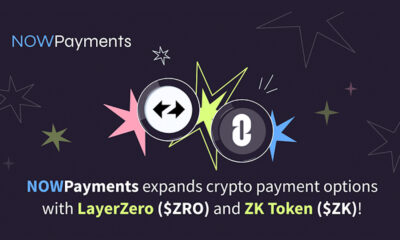
 Altcoins2 weeks ago
Altcoins2 weeks agoNOWPayments expands crypto payment options with LayerZero ($ZRO) and ZK Token ($ZK)
-

 Technologies2 weeks ago
Technologies2 weeks agoDiscover the Future of Trading with AXL Finance
-

 News2 weeks ago
News2 weeks agoAibit Launch Garners Industry Attention, Poised to Become a Rising Star
-

 Altcoins2 weeks ago
Altcoins2 weeks agoThe Covalent Network Successfully Migrates to New CXT Token to Drive Deeper Innovation in AI Following Governance Vote
-

 Business2 weeks ago
Business2 weeks agoWirex and Visa Expand Partnership to Drive Web3 Payment Adoption
-

 Blockchain1 week ago
Blockchain1 week agoData Ownership Protocol – Itheum – Launches on Solana, Embracing AI and Gaming
















You must be logged in to post a comment Login